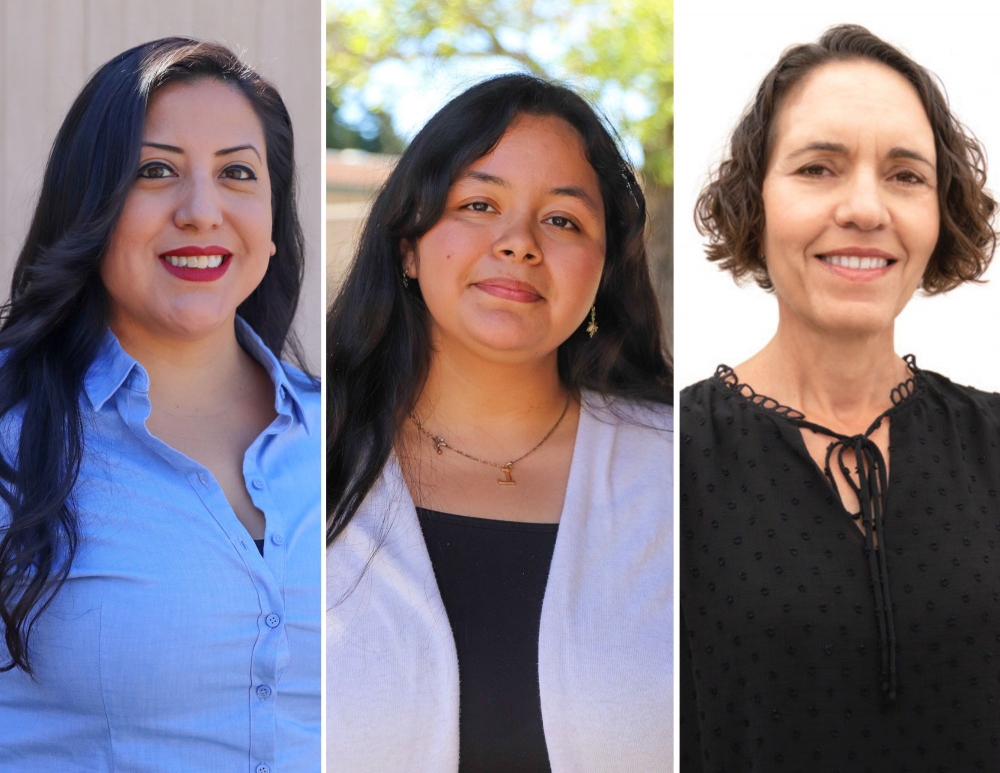McNair Scholars Get Big Investment
Lucero Torres Ojeda grew up in the outskirts of Palmdale below the San Joaquin Valley, an area where water insecurity is a fact of life for many. When she was accepted into the McNair Scholars Program at UC Santa Barbara, she realized ground water management was an issue that she could research with purpose — an issue close to her heart and home, literally.
Soon, with guidance from her mentor Debra Perrone, assistant professor in environmental studies, Torres Ojeda, as a second-year undergraduate student, was knee-deep in research. She was asking big questions about low-income and marginalized communities and their disproportionate amount of environmental health hazards; and she was looking closely at how effectively groundwater sustainability plans are using water quality metrics to better serve disadvantaged communities in the San Joaquin Valley.
At the same time, Torres Ojeda was coming to understand her own potential to be an expert in ground water management — someone who works towards data-driven solutions and educates others. She was also exemplifying the role of the McNair Scholars program: to provide student-centered, holistic and culturally sensitive mentoring to undergraduate students interested in pursuing advanced research degrees.
In October, the program received a five-year grant, roughly $1.3 million, from the U.S. Department of Education. This is the third time in its 15-year history that the program has been awarded this funding. The program also receives support from the Office of the Executive Vice Chancellor, the Graduate Division, and the deans of the College of Letters & Sciences.
Established in memory of physicist and Challenger Astronaut Ronald E. McNair, the program supports first-generation, low-income and underrepresented undergraduates who plan to pursue an advanced degree. The idea is to help increase graduate degree awards among students from underrepresented segments of society. In the current McNair cohort, about 66% are Latinx or Hispanic.
Scholars — who enter the program as sophomores, juniors and transfers — commit to weekly seminars, a one-year academic research project, GRE preparation, and presenting at a national conference. They also commit to completing their graduate degrees within 10 years of graduation.
For many students, this is the first time they are approaching research and investigation in a rigorous academic manner. Torres Ojeda, who is entering her third year at UC Santa Barbara, said that when she became a McNair scholar, she had no idea what to research and she didn’t think she could study ground water management.
“When they come into the program, research is just a vague and distant term,” said Veronica Fematt, McNair program director, “and they have no idea how to talk to faculty mentors.” Fematt gets to know each student and their research interests and then works with them to find a faculty member who agrees to be a mentor. She helps them prepare to meet with their mentors and coaches them on having confidence, advocating for their ideas, and taking themselves seriously as researchers.
They eventually find their voice, Fematt said, and so did Torres Ojeda. She is now evaluating water quality data with coding help from Kat Le in the Bren School and ongoing mentoring from Perrone. Not only is Torres Ojeda learning to perform and present sophisticated research, but she is also learning how to develop relationships with faculty and research staff. That’s part of it, said Miroslava Chavez-Garcia, McNair faculty director. The program enlists some 28 faculty members to serve as mentors, and usually all come from the groups served by the program.
“The beauty of the program is the mirrors,” Chavez-Garcia said. “We don’t always see ourselves reflected in the books or in the faculty. This is a chance to see what you want to do in people who look like you. I think it’s so important to have those mirrors — the role models — in the curriculum and the program.”
Visit the McNair Scholars Program to learn more, including eligibility requirements and application dates as well as how to make a difference in the lives of these students.





